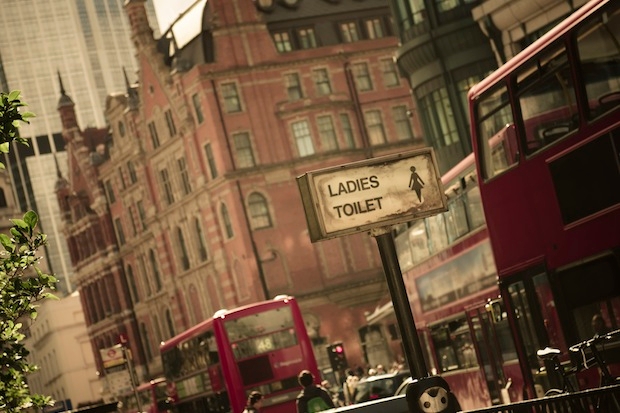After a carefree month at my wife’s house in Tuscany — the longest summer holiday I have spent there for maybe 30 years — the return to England this week has proven especially irksome. It is depressing enough to land at any British airport, but Stansted takes the cake. Arriving there after a Ryanair flight from Pisa (in itself a dispiriting experience), I found myself at the end of an enormous queue, so long that its front was indiscernible, and took 40 minutes to reach the desk of an immigration officer. There were literally thousands of people in front of me. Why so many? Why is England so much more crowded than anywhere else, even than countries with as dense or denser populations? Why has austerity not yielded at least the benefits of smaller crowds at airports and fewer cars on the roads?
Back home, there was not only a month’s worth of mail, mainly bills, to attend to, but also the usual litany of things gone wrong after so long an absence — light bulbs dead, printer not working, chickens missing, and so on. And as if all that were not enough, I awoke next morning to a discussion on the Today programme about a worrying decline in the number of public conveniences. Toilets, or fear of their unavailability, have always been a British obsession, as the late Auberon Waugh used to point out regularly in these pages; and it was one of John Major’s promises as prime minister to ensure a better supply of them. But somehow this never happened and, according to a trade union official complaining on Today about the difficulties caused by their shortage to outdoor workers such as lollipop ladies, it is all the fault of government cuts to local authority budgets.
The trade union official dismissed as rubbish a tentative suggestion by James Naughtie that local authorities might also bear some responsibility, since they decide their own spending priorities; but in my postbag is a letter from South Northamptonshire District Council suggesting that Naughtie had a point. This announced ‘improved recycling services’ for which the council would supply all households with three new kinds of rubbish receptacle in addition to the three they had got already. Until now we have had a black wheelie-bin for ordinary rubbish, a green one for compostable garden waste, and a green box with a lid for recyclable paper and glass. Now we will have a blue wheelie-bin for recyclable stuff (expanded to include plastic, foil, tins, aerosols and tetrapak cartons) and two new ‘caddies’ (small plastic bins) for food waste — a very small caddy for indoor use and a larger one for outdoors.
Since I give all my leftover food to my chickens, the clean and lidded ‘caddies’ will take the place of the dirty old bucket I have hitherto used for the purpose. But the green box is now redundant, its function having been taken over by the blue wheelie-bin. But such is the council’s largesse that it doesn’t even want its boxes back. ‘Please keep them to use for something else,’ it says in its information pamphlet. ‘They make good tool/toy boxes or potato planters.’ This is not merely advice one could do without, but an unashamed confession to a futile waste of taxpayers’ money. I don’t know what the council’s record on the provision of public toilets is, but it certainly could be hugely improved to the greater satisfaction of lollipop ladies if it didn’t spend vast sums on inundating us with bins and pamphlets telling us how to use them. (If one needs an extra blue bin, one can buy it from the council for £30, which gives an idea of what these things cost.)
Perhaps I am being unfair to the council for, although it expresses pride in its new recycling system, it may just be obeying a government order to comply with the European Waste Framework Directive. According to the Daily Mail, compliance with this directive is obligatory in all European Union member states, even though it has forced Britain’s coalition government to renege on a promise to restore weekly rubbish collections. Not only that, but dividing up one’s rubbish among different bins is both aggravating and time-consuming (batteries, for example, ‘must be placed in a small plastic bag and tied to the lid of the blue bin’, and tetrapaks must be squeezed flat). And then there is no guarantee that any of this rubbish is actually being recycled or, if it is, that it is doing any good. These are things that one must take on trust. One option is to move into the territory of one of the 100 councils in England and Wales that still make weekly rubbish collections and don’t boss one about. Another could be to return to Italy.






Comments